
Welcome to Episode 12
Amtrak’s Coast Starlight is by far my favorite train. We introduce the Coast Starlight in this episode of Ramping Up your English. The Coast Starlight glides right through Portland, Oregon, where the distinctive train station graces the Portland skyline. It actually stops here, not just glides by.
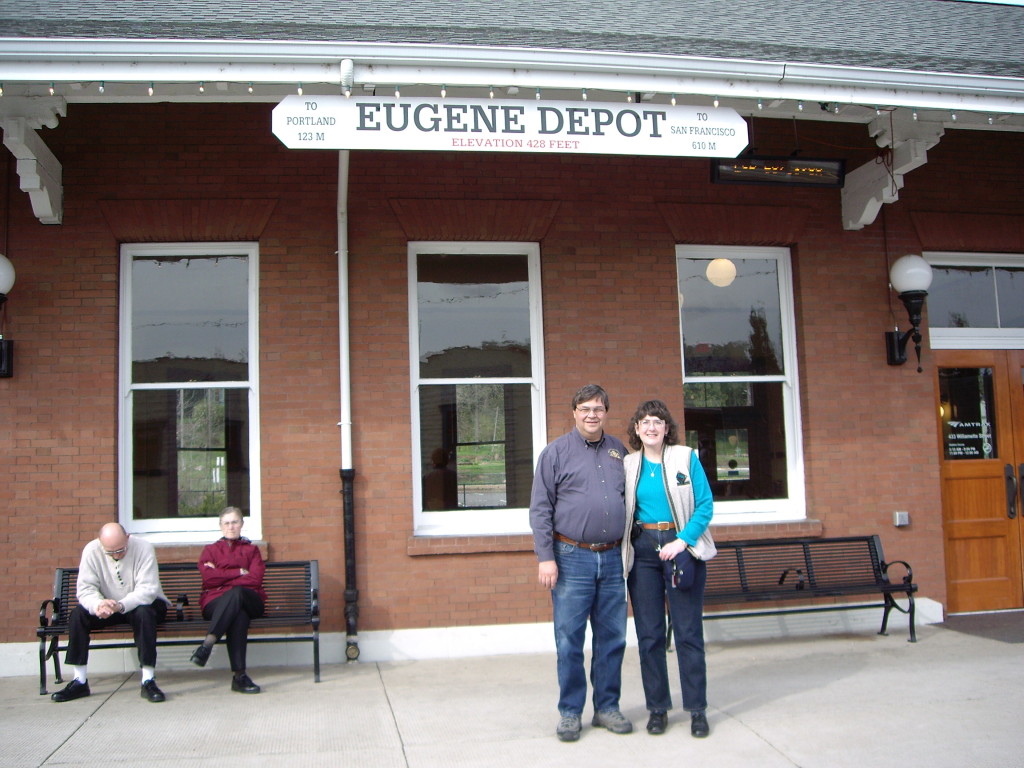
Watching Episode 12: Coast Starlight
The Coast Starlight train has a romantic-sounding name, and it lives up to that name. This episode features a journey northbound. To watch the entire episode ad-free, Click here. You’ll be able to watch or download from archive.org.
View by Segments
Click here to see the first segment of this episode.
Click on Segment 2
Language Matters
This episode takes us into the subjunctive mood and the conditional verb tense. Learn what we mean by if/then statements. We also did some vocabulary work, starting with our earliest list and building on with more frequently heard (or read) words. We used the same strategies of using prior knowledge and context clues, along with tips on using the dictionary. We introduced use of a bi-lingual dictionary.
Coast Starlight
I could hardly wait to share this fantastic train with viewers, so we got right to part one of the Coast Starlight Northbound from Los Angeles.
Video Clips
Here are the videos we feature in this episode:
Coast Starlight Northbound, part 1
Click here for Coast Starlight Northbound, Part 1 on Archive.org
Coast Starlight Northbound, part 2
Click here for Coast Starlight Northbound, Part 2 on Archive.org
Interview with ELL student Rocio
Click here for Interview with ELL Student Rocio
Outside Links
If you saw the bonus clip on the Episode 11 page, you saw scenes from the rice harvest in Louisiana near Crowley. Harvest was my favorite time of my uncle’s farm. Everyone’s in a great mood, and I got to operate the combine after a few years of pulling the rice buggy. If you liked that bonus video, you might enjoy this video clip from another producer:
Here’s an awesome video I found on Crowley, Louisiana’s Rice Festival. This is the 2014 festival, the year Liz and I were in Crowley for the Rice Festival. It has great use of drone videography.
If you’d like more information about the town of Crowley, Louisiana, you can learn about Crowley’s history from a book recently written by Ann Mire. Click here for a look at her book.
Language Objectives
Use conditional tense verbs to communicate in subjunctive mood.
Use prior knowledge and grouping techniques to find the meaning of unit vocabulary words.
Academic Content Objectives
Transportation: Trace the railroad route that runs from North to South along the West coast of The United States in North America. Identify passenger rail transportation along the West Coast of the United States. Name and identify engineering structures constructed for running a railroad in mountainous terrain. History: Describe the development of railroads along the West Coast of the United States and the role of Southern Pacific and its competitors. Geography: Describe geographic features along the Western seaboard if the United States, along the north/south railroad from Southern California through Oregon.
Motivational Video Clip: You are so brave and dedicated to do this work! Improving your English is not easy, but the effort is worthwhile. At least that’s the opinion of Rocio Moctezuma, an ESL student who improved her English proficiency enough to exit the ESL program at her elementary school. This episode features a short interview with her, taken from a TV program entitled Adventures in Education.
Lesson Details
From the first video clip, we learned that if our train had been on time, we wouldn’t have seen the stunning sunset in the Pacific Ocean. We would have been inland by the time of the setting sun. Communicating this idea involved both the conditional use of the verb “see” and using the subjunctive mood.
So we put together 2 parts of a hypothetical situation: If we had been on schedule, we wouldn’t have seen the sunset in the Pacific Ocean. It’s conditional because one thought depends on the other. It’s subjunctive because it joins two thoughts that are related, but aren’t true… We WERE behind Schedule, and we DID see the sunset.
This is also called an if/then statement. I pointed out that we could have said, “If we weren’t behind schedule, then we wouldn’t have seen the sunset in the Pacific Ocean. I also pointed out that we often drop the word “then” from an if/then statement in the United States.
We could avoid the subjunctive mood by simply stating that since the train was behind schedule, we saw the sunset in the Pacific Ocean.Doing so fails to capture the same feeling as the if/then statement in the subjunctive mood. It’s a subtle difference, but a powerful one in conveying the idea. Things get that way when you ramp up your English to a higher level. We also did some vocabulary work, using strategies to find the meanings of unfamiliar words. You’ll find those materials below.
Lesson Materials
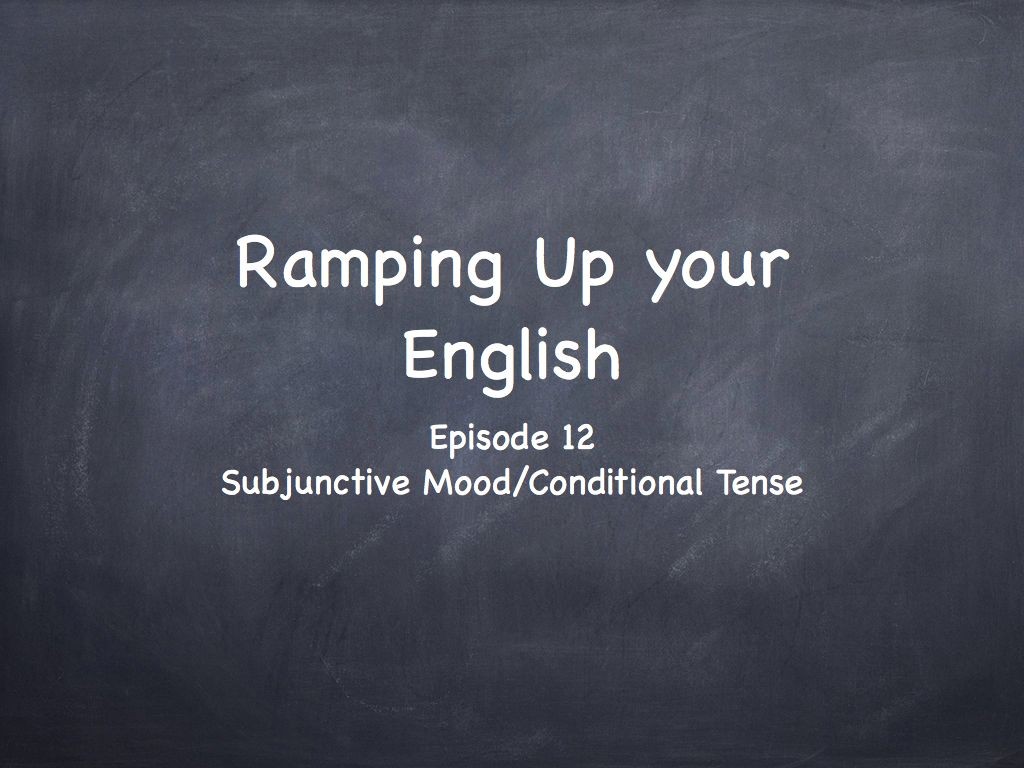
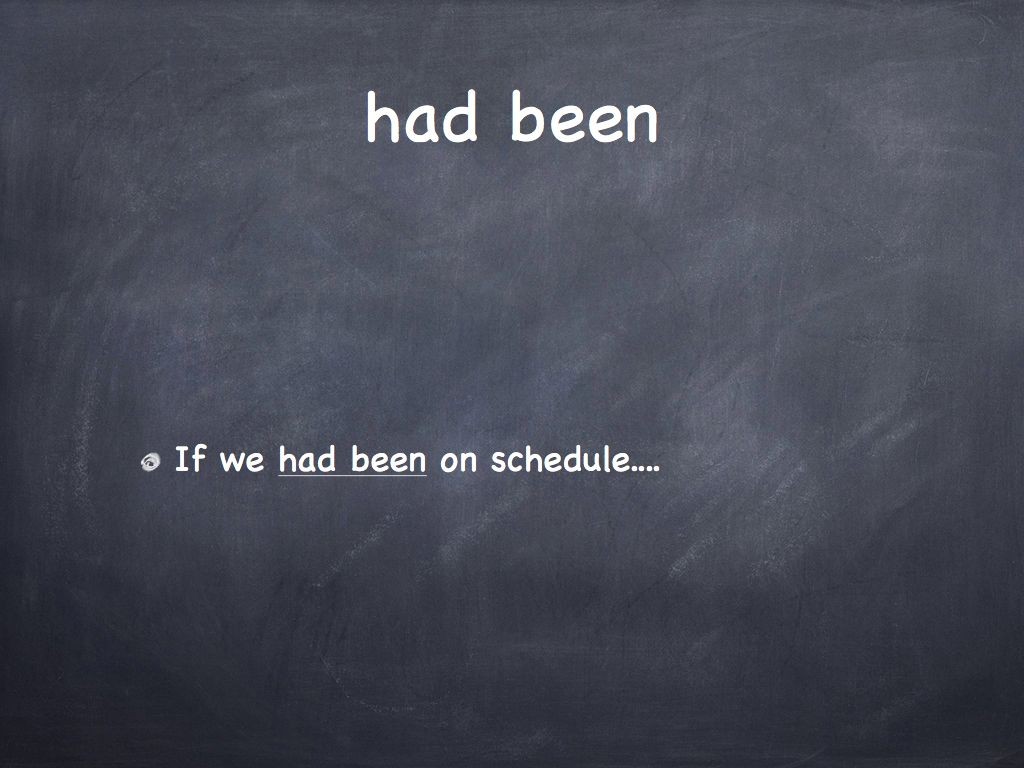
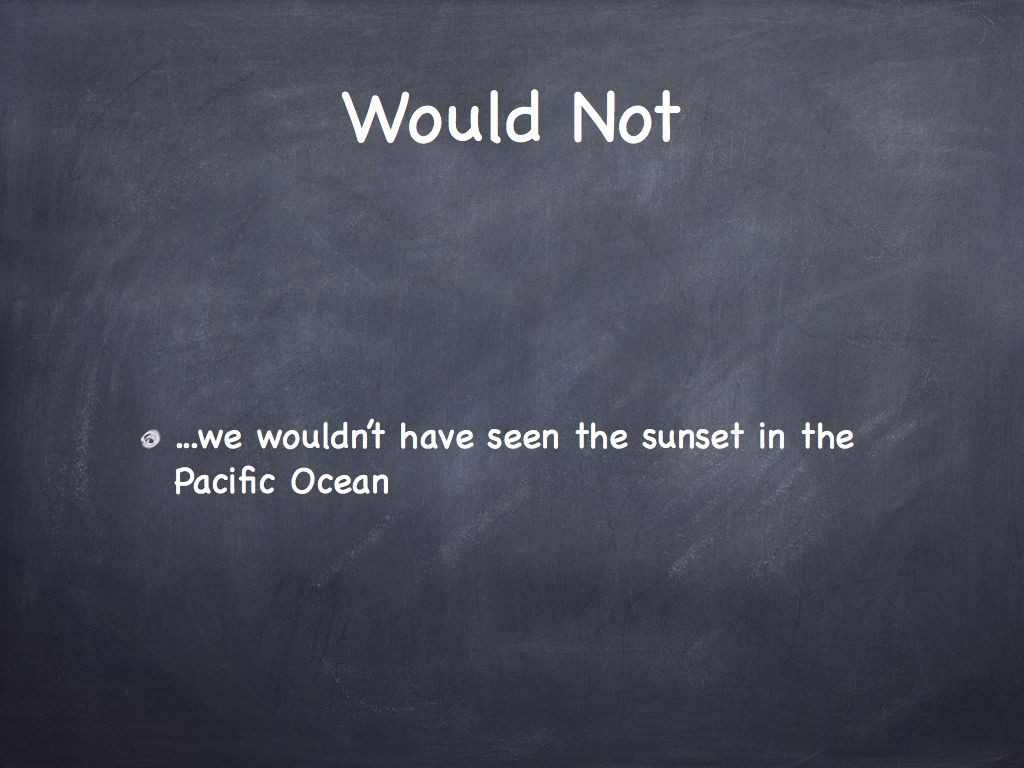

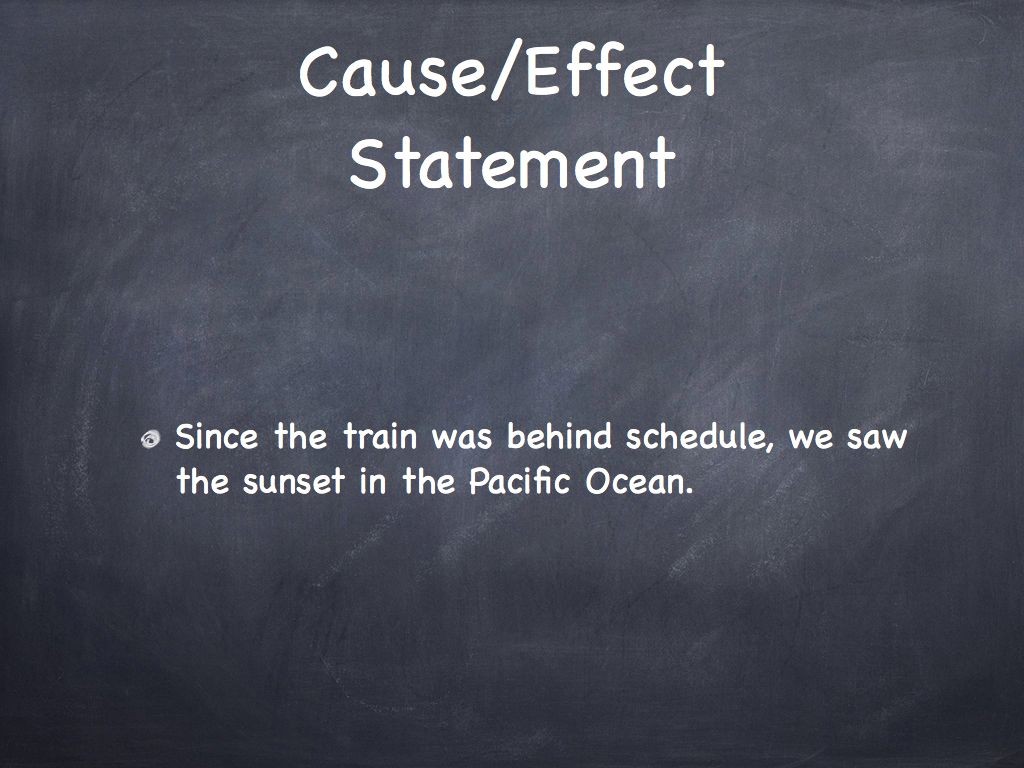

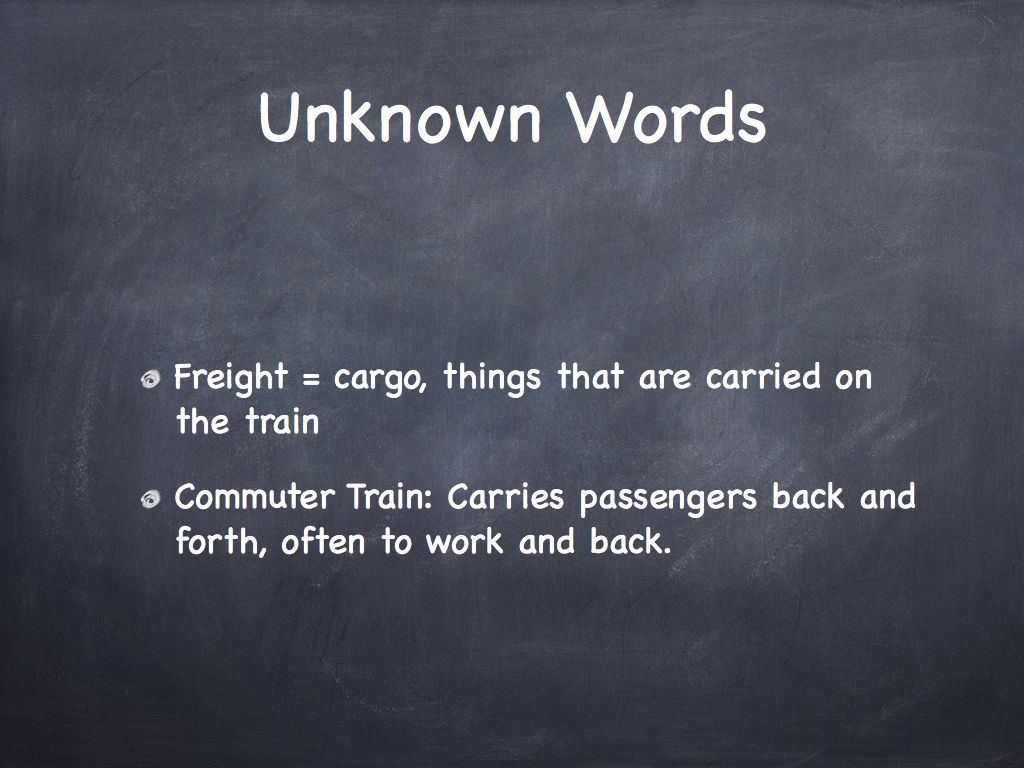


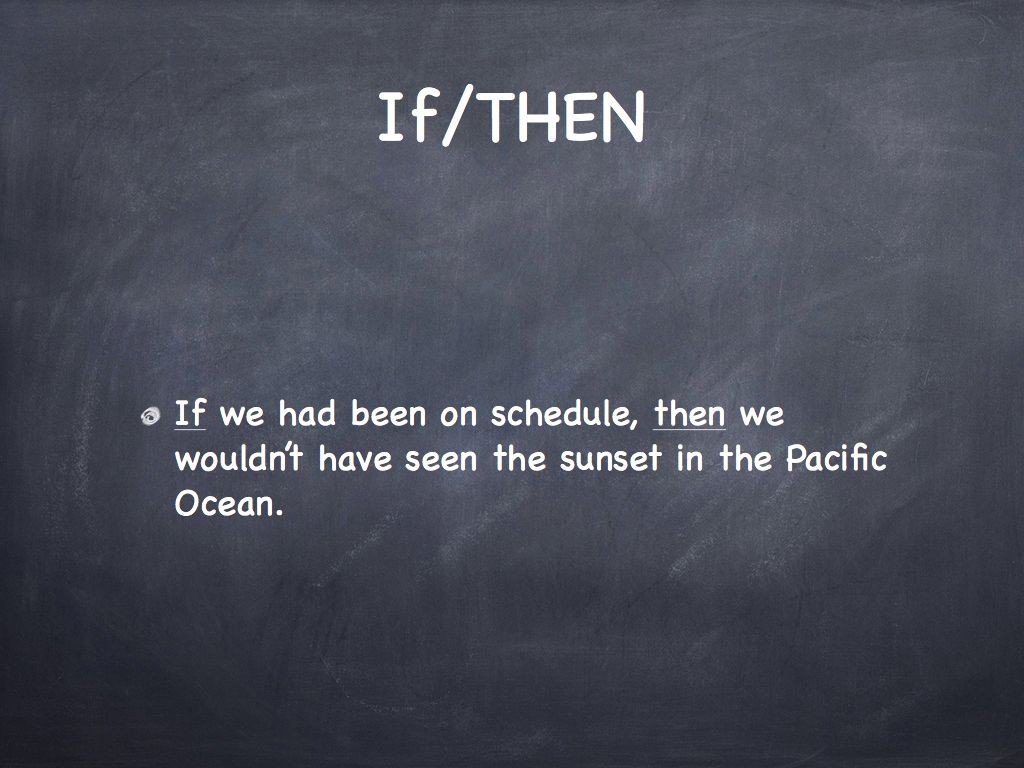
Learning Strategies
I modeled a think-aloud to model strategies for learning the meanings of unknown words. I pointed out that – while you may make mistakes – you’ll probably find the right meanings most of the time by looking at context clues, activating your prior knowledge, and occasionally using the dictionary.
Homework
Watch some of the video clips used in this episode (See Video Clips above); and find a new set of vocabulary words that are repeated. Use the strategies from this episode to find the meaning of these words. Don’t try more than 10. Write the words and their meanings in your notebook.
Episode 13
That leaves us with the next episode, when we’ll return to the Coast Starlight and some great scenery. See you in Episode 13!